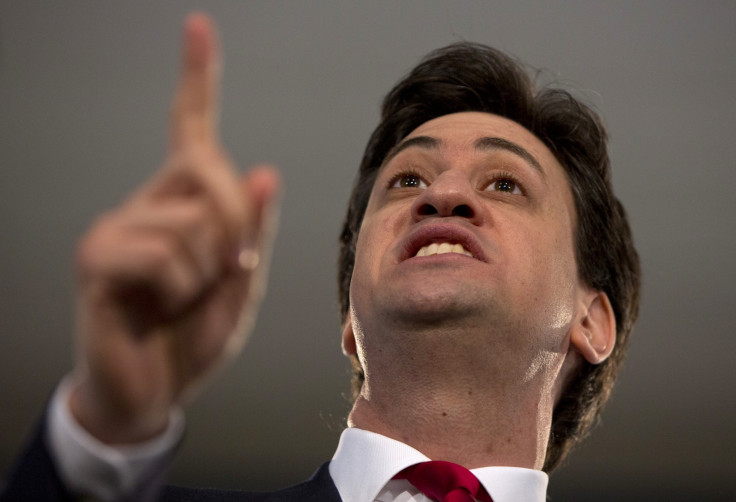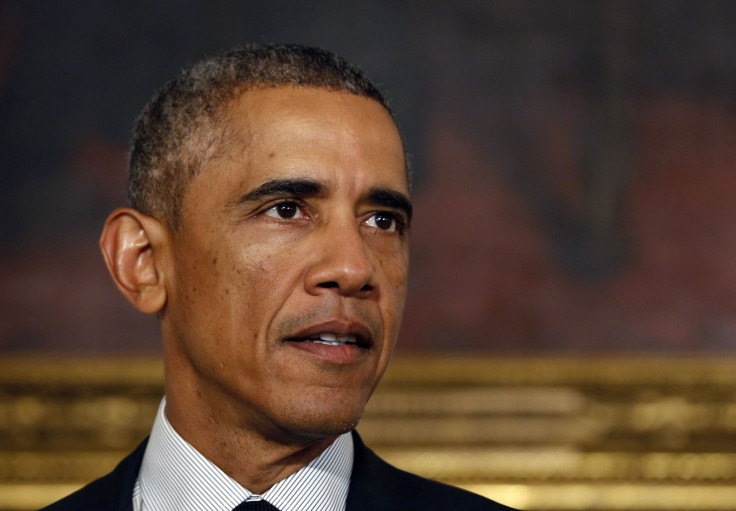Miliband's £8 Pledge Taps into a Global Trend but Fails to Inspire His Party Faithful

Ed Miliband attempted to pull his party out of its post-Scottish independence referendum slump with a minimum wage hike pledge.
But the promise, which would see the minimum rate rise to £8 ($13.10, €10.18) per hour by 2020 if Labour is elected, caused more sedation than stimulation among the party faithful.
The rate currently stands at £6.31 an hour and is due to rise by 2.9% in October to £6.50, on the recommendation of the Low Pay Commission.
But Miliband's plan would mean the minimum wage would rise by 3.75% or 33p per year – hardly the big T-bone steak shaped piece of policy meat Labour supporters were after.
In fact, once the Office for Budget Responsibility's Consumer Price Index inflation projection is taken into account, the raise would be 2.2% or 13p per year.
The problem is that the proposal does not substantially separate Labour from the Conservative Party on pay policy.
The chancellor George Osborne, for example, said he would consider increasing the NMW to £7 per hour by 2015 earlier this year.
The minimum wage promise mainly attracted the criticism of business groups, creating a headache for Miliband.
The Federation of Small Businesses, which surveyed its members last year, found that more than two out of ten (23%) of small businesses said the 2013 rate rise for the NMW would have a negative impact on their company.
Of these, three quarters (75%) said that it would reduce their firm's profitability, 35% would be reluctant to take on new staff and 34% said they would have to increase prices.
But beyond this snapshot of these small firms, does the rate negatively affect employment?
According to the latest report from the Low Pay Commission, there remains "little evidence of significant adverse effects of the minimum wage on employment".
Indeed, employment did not drop after the NMW first come into force in April 1999.
The policy came after John Major's government abolished wage councils in 1993, which set rates for industries with typically low pay.
But the unions, which practiced collective bargaining, were also in decline – membership had fallen from 14 million in the 1970s to 7.3 million in 1999.
The unions down and wage councils destroyed, Labour introduced the National Minimum Wage act.
Now, the trade unions proudly support the minimum wage, often calling for increases to help the poorest workers.
But it has not always been like this. In fact, most unions in the 1970s opposed the idea, instead favouring collective bargaining.
The National Union of Public Sector Workers, which merged into Unison in 1993, was the leading proponent of the policy.
In 1974, the union's general secretary, Alan Fisher, and one of its researcher officers, Bernard Dix, argued for the policy in a pamphlet entitled Low Pay and How to End It.
The trade unionists were fighting against Labour's acceptance of "economic orthodoxy".
This fight against "economic orthodoxy" has recently gone global.
A Global Trend

Low pay work increasing and its unions' influence declining, the German government has introduced the country's first minimum wage.
But the International Monetary Fund has warned that Europe's largest economy could run into trouble by implementing £6.73 per hour minimum wage in next year.
The move, part of the Grand Coalition's agreement, could have potential adverse effects on employment across regions and economic sectors.
In particular, the IMF warned that sizable adverse effects in such federal states and among the low-skilled could materialise.
However, the proposed minimum wage is likely to be binding for 10% of workers in the country, except for 15-20% of workers in some federal states mostly in the East where unemployment rates are already relatively high.
Remarkably, one of the richest countries in the world does not have a minimum wage. Switzerland, for instance, recently rejected plans to introduce a £14.66 an hour rate.
The move would have meant that the Western European state had the world's highest minimum wage — more than double the UK's.
Swiss unions, like their comrades in the UK and Germany, made the proposal in hopes to counter the high cost of living in Switzerland's major cities.
But the plan was rejected by an overwhelming majority of 76% of voters.
Beyond Europe, the United States is facing its own minimum wage debate. President Obama wants to increase the £4.43 rate, set in 2009, to £6.17 per hour. But the Democratic Party politician is facing Spartan like opposition in Congress from Republicans over the policy.
Inevitably, the IMF has weighed in on the matter. It wants the US to increase the rate, arguing that it would make millions of Americans better off.
It seems that Miliband has tapped into a global trend. There is a worldwide debate over the cost of living at the moment. But he has failed to inspire with his £8 pledge.
With less than eight months before the 2015 General Election and Labour only two points ahead of the Tories in the polls (YouGov for The Sun), it may mean Miliband is not elected into office.
© Copyright IBTimes 2025. All rights reserved.






















